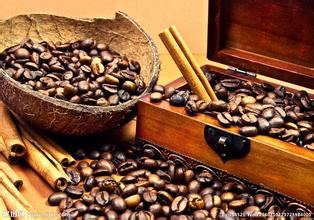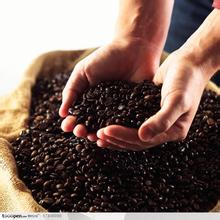Flavor description of Cadura Coffee from Honduras introduction of varieties produced by grinding scale treatment
Flavor Description of Honduras Kadura Coffee Grind Scale Processing Region Variety Introduction
Beneficio Santa Rosa, a small cooperative belonging to the local community, was founded in 2005 with the support of TechnoServe, a non-profit organization that provides production technology and poverty eradication. The cooperative has set up a Mejoramiento Agrícola Sostenible (MAS) project to support 6000 small coffee farmers by providing technical assistance aimed at producing high-quality coffee beans. Coffee is grown at altitudes of 1,500 to 2,000 meters, and the main varieties are Caturra, Catuai, Bourbon, Pacas and Typica. Flavor references: sweet, cream, brown sugar, melon, mint, caramel milk. The fruit acid flavor is less obvious, layered and has a strong caramel sweetness. Aroma harmony, rich taste, sweet flavor, warm mouth RFA (Rainforest Alliance ) certification
A non-profit, international, non-governmental environmental protection organization whose mission is to protect the global ecosystem and the people and wildlife that depend on it through changes in land-use patterns, business and consumer behavior.
Rainforest certification
Rainforest Alliance RFA (Rainforest Alliance ) certification refers to farms that meet the standards set by the Rainforest Alliance. The Alliance will protect the farm and its surrounding ecosystems, impose some restrictions on the use of pesticides, and evaluate benchmarks such as waste management. Only coffee that passes the evaluation and is certified can be called "Rainforest Alliance Certified Coffee". The certification criteria for coffee stipulate that traditional farming methods cultivated under the shade of native forests are used, and farming methods that are beneficial to the protection of ecosystems are used. Part of the proceeds from the Alliance are also used for wildlife conservation in tropical rainforest animal reserves and improvement of workers 'livelihood.
Honduras is a mountainous country in Central and North America with a population of more than 8.3 million and an area of about 112,000 square kilometers. Located in northern Central America. It is bordered by the Caribbean Sea to the north, the Gulf of Fonseca in the Pacific Ocean to the south, Nicaragua and El Salvador to the east and south, and Guatemala to the west. More than three-quarters of the territory is mountainous and plateau. Mountains extend from west to east, inland for lava plateau, multi-mountain valley, coastal plains. Tropical climate, coastal plains are tropical rain forest climate.
Honduras coffee is imported from El Salvador. Coffee production was lukewarm until the Brazilian frost of 1975. Brazil was hit hard, coffee production plummeted, while Honduras took advantage of the opportunity to "rise", coffee production soared from 500,000 bags to 1.8 million bags, and was looted. Coffee production in Honduras really took off after that.

Important Notice :
前街咖啡 FrontStreet Coffee has moved to new addredd:
FrontStreet Coffee Address: 315,Donghua East Road,GuangZhou
Tel:020 38364473
- Prev

How to match Yunnan coffee beans with taste characteristic price variety flavor description taste treatment method
How to match Yunnan coffee beans with taste characteristics, price, variety, flavor description, taste treatment, coffee and fashions from Europe, they all have a foreign character label. Rome in Italy, Paris in France, Edinburgh in England, samba in Brazil, elegant Colombia, sunset in Mexico, seem to have foreign character labels, everything keeps pace with Europe and enjoys the romance of Europe.
- Next

The method of Grinding and Calibration of Iron pickup Coffee beans Flavor description introduction of varieties in manor area
The Grinding scale treatment of Iron pickup Coffee beans Flavor description of the Manor Variety introduction in 1892, French Catholic missionaries left such a legend. He entered the Zhukula missionary, built a local church and introduced the habit of drinking coffee to the village of Zhukula. He personally planted a coffee forest and taught local villagers to grow, drink and sell coffee.
Related
- Detailed explanation of Jadeite planting Land in Panamanian Jadeite Manor introduction to the grading system of Jadeite competitive bidding, Red bid, Green bid and Rose Summer
- Story of Coffee planting in Brenka region of Costa Rica Stonehenge Manor anaerobic heavy honey treatment of flavor mouth
- What's on the barrel of Blue Mountain Coffee beans?
- Can American coffee also pull flowers? How to use hot American style to pull out a good-looking pattern?
- Can you make a cold extract with coffee beans? What is the right proportion for cold-extracted coffee formula?
- Indonesian PWN Gold Mandrine Coffee Origin Features Flavor How to Chong? Mandolin coffee is American.
- A brief introduction to the flavor characteristics of Brazilian yellow bourbon coffee beans
- What is the effect of different water quality on the flavor of cold-extracted coffee? What kind of water is best for brewing coffee?
- Why do you think of Rose Summer whenever you mention Panamanian coffee?
- Introduction to the characteristics of authentic blue mountain coffee bean producing areas? What is the CIB Coffee Authority in Jamaica?

